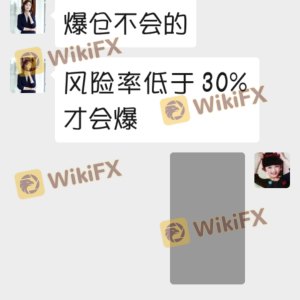Is Financial integration safe?

Pros
Cons
Is Financial Integration Safe or a Scam?
Introduction
Financial Integration is a forex broker that has garnered attention in the trading community, primarily targeting the Chinese market. As with any financial service provider, it is crucial for traders to exercise caution and conduct thorough evaluations before engaging with a broker. The forex market is rife with opportunities, but it also poses significant risks, especially when dealing with unregulated or poorly regulated entities. This article aims to assess the legitimacy and safety of Financial Integration by examining its regulatory status, company background, trading conditions, client fund security, customer experiences, platform performance, and overall risk profile. The analysis is based on various online sources, expert reviews, and user feedback to provide a comprehensive overview.
Regulation and Legitimacy
The regulatory framework within which a broker operates is a critical factor in determining its legitimacy and safety. Financial Integration claims to be registered in the United Kingdom. However, a closer inspection reveals that it lacks proper regulation from recognized authorities. This raises significant concerns about the broker's operational integrity and the safety of client funds.
| Regulatory Authority | License Number | Regulatory Region | Verification Status |
|---|---|---|---|
| NFA | None | United Kingdom | Unverified |
The absence of a license from a top-tier regulator, such as the FCA (Financial Conduct Authority) or ASIC (Australian Securities and Investments Commission), is a red flag. Brokers regulated by these authorities are subject to stringent compliance measures, ensuring higher levels of investor protection. Moreover, the historical compliance record of a broker is essential in evaluating its reliability. Given that Financial Integration does not have a verified license, its regulatory quality is questionable, making it less trustworthy for potential traders.
Company Background Investigation
Understanding the company's history and ownership structure is vital for assessing its credibility. Financial Integration has been operational for a few years, primarily focusing on the Chinese market. However, detailed information regarding its ownership and management team is scarce. This lack of transparency can be concerning for potential investors.
The management teams background is crucial in determining the broker's reliability. A team with extensive experience in finance and trading can often indicate a more trustworthy operation. Unfortunately, Financial Integration does not provide sufficient information about its management, which raises questions about its operational integrity and commitment to transparency.
Trading Conditions Analysis
The trading conditions offered by a broker can significantly impact a trader's experience and profitability. Financial Integration advertises competitive spreads and various trading instruments. However, it is essential to scrutinize the fee structure for any hidden costs that may not be immediately apparent.
| Fee Type | Financial Integration | Industry Average |
|---|---|---|
| Major Currency Pair Spread | 2.0 pips | 1.5 pips |
| Commission Model | None | Varies |
| Overnight Interest Range | High | Moderate |
The spread for major currency pairs is notably higher than the industry average, which can eat into potential profits. Additionally, while the broker claims no commissions, the high overnight interest rates could be a hidden cost. Traders should be cautious and consider how these fees might affect their overall trading strategy.
Client Fund Safety
Client fund safety is paramount when evaluating any broker. Financial Integration claims to implement measures to safeguard client funds, including segregated accounts. However, without proper regulatory oversight, the effectiveness of these measures is questionable.
The broker's policies regarding negative balance protection and investor compensation schemes are also critical. A lack of such policies can expose traders to significant financial risks, especially in volatile market conditions. Historical issues regarding fund safety or disputes can further highlight potential concerns. Unfortunately, there have been reports of forced liquidations and complaints regarding the handling of client funds, which raises alarms about the broker's practices.
Customer Experience and Complaints
Customer feedback provides valuable insights into a broker's operational integrity. Reviews for Financial Integration indicate a mix of experiences, with several users reporting dissatisfaction due to high fees, poor customer service, and difficulties in withdrawing funds.
| Complaint Type | Severity Level | Company Response |
|---|---|---|
| Withdrawal Issues | High | Slow Response |
| High Fees | Medium | No Resolution |
| Poor Customer Service | High | Unresponsive |
Common complaints include forced liquidations and unresponsive customer support. Such patterns can significantly impact a trader's experience and should be carefully considered when evaluating the broker's reliability.
Platform and Execution
The trading platform's performance, stability, and user experience are crucial for successful trading. Financial Integration offers a platform that is reported to be user-friendly, but there are concerns regarding order execution quality.
Issues such as slippage and order rejections have been noted by users, which can significantly affect trading outcomes. Moreover, any signs of platform manipulation should be scrutinized, as they can indicate deeper issues within the broker's operations.
Risk Assessment
Using Financial Integration poses several risks that traders should be aware of.
| Risk Category | Risk Level | Brief Description |
|---|---|---|
| Regulatory Risk | High | Lack of proper regulation raises concerns. |
| Financial Risk | High | High fees and poor fund safety measures. |
| Operational Risk | Medium | Reports of poor customer service and execution issues. |
To mitigate these risks, traders should consider using a regulated broker with a proven track record. Conducting thorough research and staying informed about the broker's practices can help minimize potential losses.
Conclusion and Recommendations
In conclusion, the evidence suggests that Financial Integration may not be a safe choice for traders. The lack of regulatory oversight, combined with reports of high fees, poor customer service, and fund safety concerns, raises significant red flags. Traders should exercise caution and consider alternatives that offer better regulatory protection and transparency.
For those seeking reliable options, brokers regulated by top-tier authorities such as the FCA or ASIC are recommended. These brokers are more likely to provide a secure trading environment and protect client interests. Always prioritize safety and due diligence when selecting a forex broker to ensure a positive trading experience.
Is Financial integration a scam, or is it legit?
The latest exposure and evaluation content of Financial integration brokers.


Financial integration Similar Brokers Safe
Whether it is a legitimate broker to see if the market is regulated; start investing in Forex App whether it is safe or a scam, check whether there is a license.
Financial integration latest industry rating score is 1.57, the higher the score the safer it is out of 10, the more regulatory licenses the more legitimate it is. 1.57 If the score is too low, there is a risk of being scammed, please pay attention to the choice to avoid.